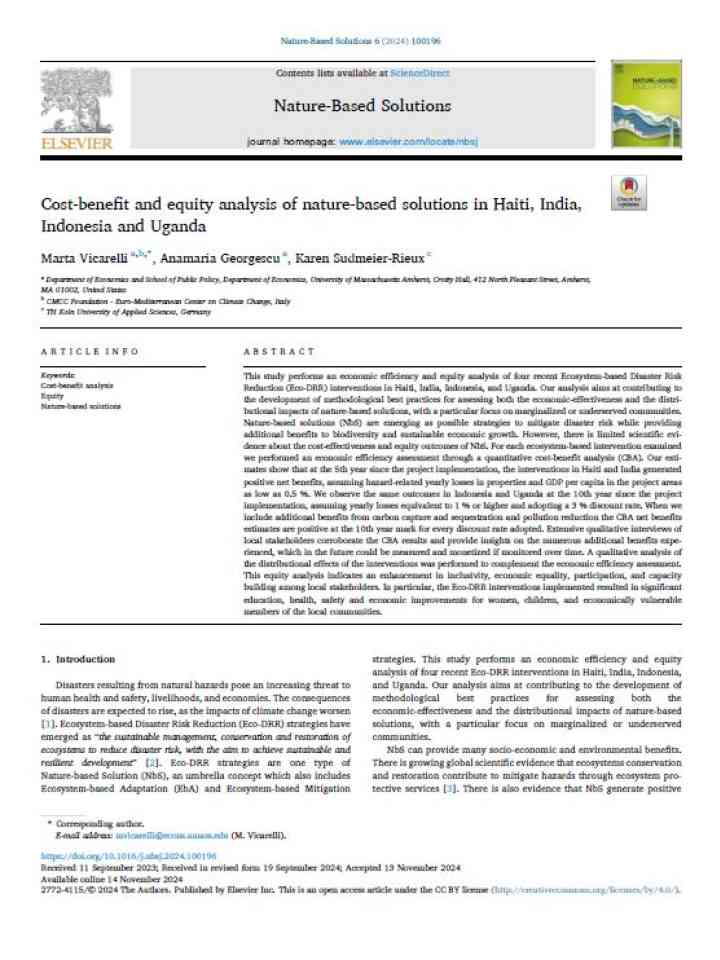Cost-benefit and equity analysis of nature-based solutions in Haiti, India, Indonesia and Uganda
This study performs an economic efficiency and equity analysis of four recent Ecosystem-based Disaster Risk Reduction (Eco-DRR) interventions in Haiti, India, Indonesia, and Uganda. This analysis aims at contributing to the development of methodological best practices for assessing both the economic-effectiveness and the distributional impacts of nature-based solutions, with a particular focus on marginalized or underserved communities. Nature-based solutions (NbS) are emerging as possible strategies to mitigate disaster risk while providing additional benefits to biodiversity and sustainable economic growth. However, there is limited scientific evidence about the cost-effectiveness and equity outcomes of NbS. For each ecosystem-based intervention examined the authors performed an economic efficiency assessment through a quantitative cost-benefit analysis (CBA).
Their estimates show that at the 5th year since the project implementation, the interventions in Haiti and India generated positive net benefits, assuming hazard-related yearly losses in properties and GDP per capita in the project areas as low as 0.5 %. The authors observe the same outcomes in Indonesia and Uganda at the 10th year since the project implementation, assuming yearly losses equivalent to 1 % or higher and adopting a 3 % discount rate. When they include additional benefits from carbon capture and sequestration and pollution reduction the CBA net benefits estimates are positive at the 10th year mark for every discount rate adopted. The analysis indicated that the Eco-DRR interventions implemented resulted in significant education, health, safety and economic improvements for women, children, and economically vulnerable members of the local communities.
Explore further
